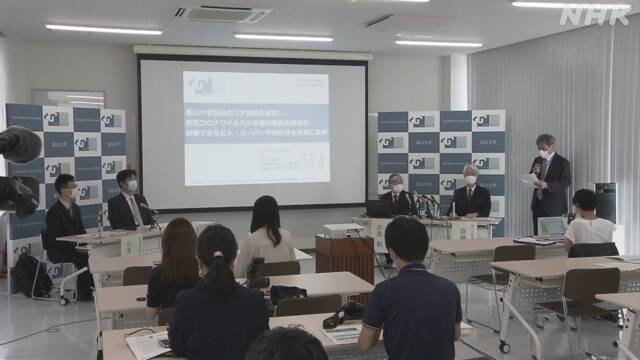Research groups such as the University of Toyama have announced that they have succeeded in artificially producing neutralizing antibodies that prevent various types of mutated coronaviruses from binding to cells and prevent infection. did.
We would like to collaborate with a pharmaceutical company and aim to develop it as a therapeutic drug.
This was revealed by a research group at the University of Toyama at a press conference on the 16th.
The research group extracted "B cells," which are immune cells that produce antibodies, from the blood of patients who have recovered from infection with the new coronavirus.
And by recombining the gene of this B cell to make an antibody, it is said that it succeeded in artificially producing a neutralizing antibody that has a particularly strong ability to prevent infection.
According to the research group, this neutralizing antibody has the function of inhibiting the binding of the new coronavirus to cells in the body, and it can be expected to prevent its aggravation when administered to patients with mild or moderate disease. is.
In addition, the research group named the antibody a "super-neutralizing antibody," as it could prevent infection with most of the currently identified mutant viruses.
The new coronavirus drug that administers artificially created antibodies is called an "antibody drug," and although some are used urgently overseas, the problem is that the effect of the mutant virus is reduced.
The University of Toyama hopes to collaborate with pharmaceutical companies and aim to develop it as a therapeutic drug.

